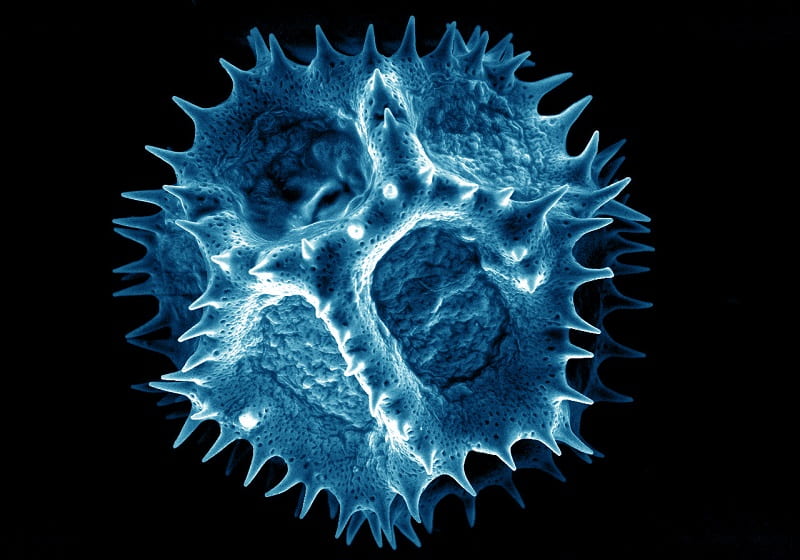Universities hold the promise of a better future, a future where the kind of social mobility promised by the American Dream is more than just a fantasy. Equal access to the kind of upward social mobility higher education creates has been a priority since day one for the University of California, Irvine.
That’s why we celebrate our participation in the American Talent Initiative to help gather inspiring stories to share with the nation as part of the #ActivateTalent social media campaign.
At UCI, we are inspired by innovators and entrepreneurs. Their stories are truly inspiring. We are excited to share the story of Velox Biosystems, a Cove Share company.
Velox Biosystems, a Cove Share startup founded on technology developed at UCI, is solving the problem of detecting bacteria in blood with a simple, fast, and unique approach. A UCI startup at its core, the innovative testing system was developed by Dr. Weian Zhao, a professor in the Department of Pharmaceutical Sciences, in collaboration with the Laboratory for Fluorescence Dynamics (LFD) on campus. News of the breakthrough included a feature in Nature Communications, a prominent science journal. The community responded favorably to the news, encouraging Dr. Zhao along with Dr. Chris Heylman, a postdoc working at the LFD, and Neto Sosa, a Ph.D. graduate student working in the Zhao Lab, to form a company and develop the technology further.

To strengthen the team, Velox recruited Dr. Byron Shen, an MBA, and a Ph.D., who had been working on the business side of medical devices and biotech for his entire career. Dr. Shen’s experience includes working with companies ranging from 3M HealthCare to small companies and startups. With their team fully assembled, Velox continued developing the original technology toward a commercial application using the Integrated Comprehensive Droplet Digital Detection platform (IC3D).
Simply put, the IC3D digital droplet platform helps find bacteria in the blood rapidly with exceptional sensitivity. The IC3D platform uses a combination of microfluidics, fluorescent chemistry, and a unique approach to microscopy to (1) light up bacteria with fluorescent sensors and (2) rapidly scan a large volume of raw blood to count the number of bacteria present. With the system’s high sensitivity to detect bacteria, even in circumstances where the bacteria count is low, the IC3D system enables healthcare providers to get test results in under an hour where it currently takes days or weeks. Additionally, the process allows for a simplified workflow to gather the samples needed for the test from readily available sources. The traditional model, in contrast, requires several steps which pose issues around safety, contamination, and reliability. “Clinical applications of the IC3D platform in development include a rapid test for early diagnosis of sepsis and antibiotic resistance – two serious problems in healthcare today,” said Dr. Shen on the topic of new projects on the horizon for Velox.
The UCI connection remains active and robust with Velox. Dr. Heylman shared the following, “We engaged with Applied Innovation from the very beginning. Working with the Office of Technology Alliances (now the Invention Transfer Group) we secured the patents needed to commercialize our technology. Additionally, we have collaborated with Industry Contracts to fund development for Velox in the Zhao Lab. Having access to the TechPortal Incubator at the Calit2 building has given us independent lab space while allowing us to be on campus and engaged with our academic collaborators and resources. Being accepted into the Cove Share Program and leveraging the resources there have also been instrumental in our business development. The Cove provides us a beautiful work space, complete with state of the art technology that impresses all of our visitors. We have also made extensive use of their vast network of Experts-in-Residence, their educational programming, and have had the opportunity to access and pitch to a diverse audience of investors. The Cove and Applied Innovation have directly led us to investors, consultants, partners, and have helped us accelerate our growth as a company.”
Highlights for Velox include the first sale of their prototype instrument. Additionally, they are preparing for a clinical study in early 2017. Velox was also recently nominated for the 2016 Los Angeles Business Journal (LABJ) Patrick Soon-Shiong Innovation Award. Actively expanding their team, Velox also has a new director of product development and a new business advisor with previous experience as a top level executive at a major clinical diagnostics company. Preparing for their Series A raise next year, Velox also has two pilot studies underway with major diagnostics partners and are continuing to progress with their sepsis and antibiotic susceptibility testing product.
On the topic on what they have learned so far, Dr. Shen and Dr. Heylman shared the biggest lesson for them is to “react quickly and then focus intensely.” The Velox team has explored a range of potential uses for their technology including food safety, waste water treatment, pharmaceutical production, and clinical diagnostics. By assessing the markets for each potential application, they have learned what is feasible and the steps that are needed to adjust course. “We have learned that you will never have all of the information you want, but if you gather as many data points and talk to as many of the right people as possible, you can make the best decision given the information you have,” said Dr. Shen.
To learn more about Velox Biosystems, visit www.veloxbio.com.
Article Originally Published here: http://innovation.uci.edu/2016/12/2016129startup-spotlight-velox-biosystems/

